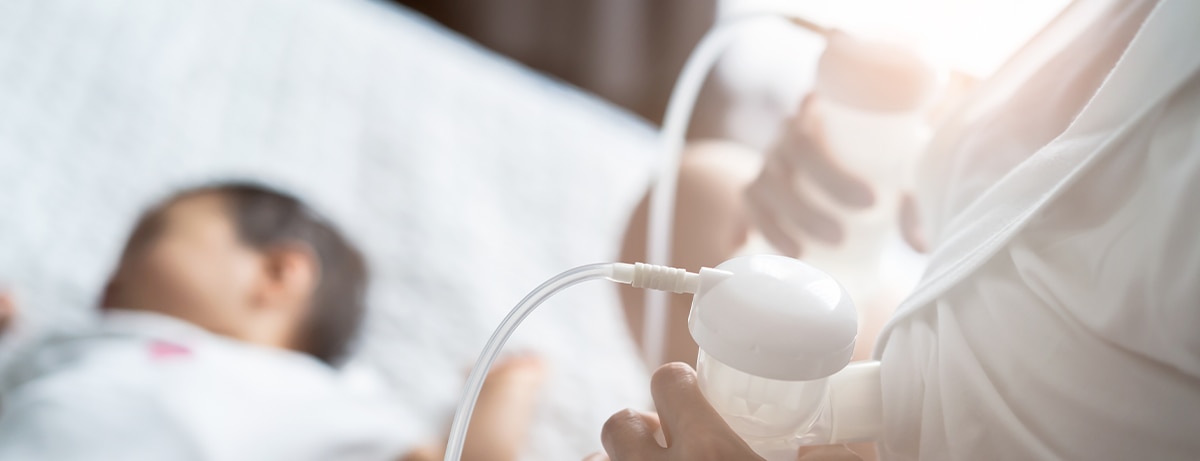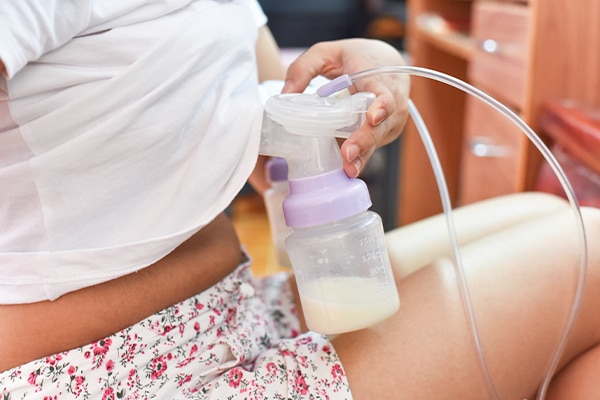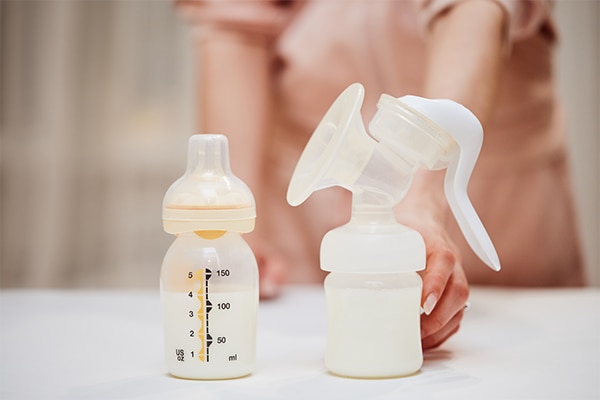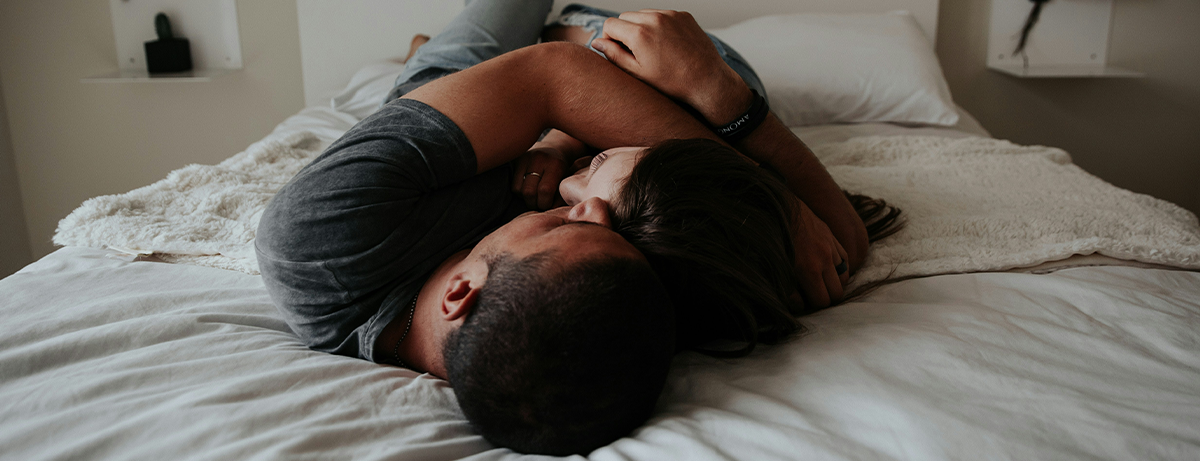15% off £25 or 20% off £35
Code:BASKET
What you need to know about alcohol and breastfeeding

Should you avoid drinking alcohol while breastfeeding? We break down the evidence and factors to consider when it comes to amount, timing and the potential role of expressing
Summary
1How alcohol affects breast milk
Simply put, alcohol may reduce how much milk you produce and how easily milk is expressed when breastfeeding…
2What happens if I drink alcohol while breastfeedi
Generally, if you drink alcohol while breastfeeding, milk production may be reduced, baby’s sleep may be worse and studies have shown that it may impa
3How much alcohol is safe to drink while breastfee
According to NHS guidance, 1–2 units of alcohol once or twice a week is unlikely to hurt your baby while breastfeeding, but of course, it is safer not
You’ve steered clear of alcohol for nine months, but now your baby is born, you might wonder whether you still need to.
Although it’s generally considered safer not to drink any alcohol at all while breastfeeding, the evidence indicates that drinking a small amount occasionally is unlikely to hurt your baby (as long as you wait at least two hours after having a drink before feeding).1 However, larger amounts can harm your baby’s health.2
Let’s explore how alcohol affects breast milk, how it can impact your baby and how much alcohol is safe to drink while breastfeeding.
How alcohol affects breast milk
Drinking alcohol while breastfeeding can temporarily disrupt both milk production and milk ejection.2,3 Otherwise known as the ‘let-down’ reflex, milk ejection is the process where milk flows from the breast when a baby starts to feed. Let’s look at the current evidence behind how alcohol could disrupt breastfeeding.
In one (albeit small) study, 22 breastfeeding women were asked to express milk on two different days.3 Researchers found that after having just 1.8 units of alcohol, the women produced 9.3% less milk in the next two hours.3
Another study showed that after drinking around 2.3 units of alcohol, lactating women took longer to eject their milk.4
Alcohol may affect lactation in this way because it lowers oxytocin levels.2 Oxytocin is the hormone that helps the muscles in your breast contract to release milk.2 So, when alcohol reduces oxytocin, it can make it harder for your body to let down milk effectively.
Simply put, alcohol may reduce how much milk you produce and how easily milk is expressed when breastfeeding. However, the research studies are currently very small and limited, and more research needs to be carried out to be sure.
When you breastfeed, traces of what you eat and drink pass through to your breast milk – and alcohol is no exception. Alcohol can pass to your baby when you breastfeed and may cause sleep, growth and developmental problems.2,5

Can you drink alcohol while breastfeeding?
According to the NHS guidance, avoiding alcohol is the safest choice. However, having a small drink (one or two units) once or twice a week is generally thought to be unlikely to affect your baby.1,2
Drinking large amounts of alcohol while breastfeeding might have long and short-term consequences for your baby. 2,6-10
What happens if I drink alcohol while breastfeeding?
There’s a big difference between having one drink every so often, drinking a lot in one go (known as binge drinking) and drinking heavily long-term.
Regular, heavy drinking poses more of a risk to your baby.2 Breastfeeding may not be the best choice in this case, so it’s important to talk to your GP or a breastfeeding specialist such as an IBCLC lactation consultant about your options. Your doctor can help guide you to the best decision for both you and your baby.
Generally, if you drink alcohol while breastfeeding:
Babies tend to drink less breast milk in the hours immediately after mum has had an alcoholic drink, potentially because less milk is temporarily being produced.2
This isn’t necessarily a big problem, as long as mum doesn’t continuously drink alcohol. Although babies typically consume about 20% less milk in the first four hours after alcohol intake, they tend to make up for it by drinking more in the following 8–12 hours once the alcohol levels in the milk drop.2
While more research is needed to fully understand how exactly alcohol affects babies’ sleep, two small studies by the same researchers indicate that small amounts of alcohol in a mother's milk may result in disrupted and shorter sleep in breastfed infants.7,8 The NHS also flags this possibility.
The evidence on how drinking alcohol while breastfeeding may affect the health and development of the baby is inconsistent. However, research has noted negative outcomes in infants that range from minor behavioural changes to sleeping disturbances and development outcomes.10,11
Given the potential for harm and the need for more studies to fully understand the long-term effects of alcohol, it is recommended that caution be applied if you’re thinking about drinking while breastfeeding. The NHS suggests, while it’s safer not to drink alcohol, one to two units of alcohol once or twice a week is unlikely to harm your baby.1
Studies looking at the potential impact of alcohol on breastfeeding duration show conflicting results.
However, one study found that women who drink more than two units of alcohol a week are twice as likely to stop breastfeeding after six months of follow-up compared to women who drank below these levels.9 It’s worth saying that another study found that low-level drinking isn’t linked to shorter breastfeeding duration.10
There's no doubt that more studies are needed to understand exactly how and why drinking alcohol while breastfeeding influences how long a mother chooses to breastfeed for.
How much alcohol is safe to drink while breastfeeding?
According to NHS guidance, 1–2 units of alcohol once or twice a week is unlikely to hurt your baby while breastfeeding, but of course, it is safer not to drink alcohol.1
One unit is equal to half a pint of cider or beer, a single shot of a spirit (25mL) or a small glass of wine (125mL).1
It’s sometimes suggested that it may be helpful to wait some time after having an alcoholic drink before breastfeeding. Evidence indicates that the highest concentration is seen 30–60 minutes after drinking.1,2

If you know you’re going to have a drink, it’s a good idea to express some breast milk before, so you can bottle feed your baby if they get hungry in the meantime.1
Younger babies may be more at risk when it comes to alcohol in breast milk, as they’re unable to break it down as quickly as adults.12 This is even more true in premature babies who may have immature livers.1
Non-alcoholic alternatives while breastfeeding
Whether you’re steering clear of alcohol entirely or just looking for a refreshing drink after a small glass of wine, there are plenty of delicious non-alcoholic options that are perfectly safe when breastfeeding (though it’s a good idea to check for any hidden caffeine or alcohol – some soft drinks like kombucha can contain small amounts of alcohol and caffeine!).
At Holland & Barrett, we offer a range of alcohol-free drinks to try the next time you’re hosting a dinner party or settling down for a cosy evening in.
The final say
What you drink, and what you eat, passes at low levels into your breast milk.
Although it’s best to avoid alcohol when breastfeeding, the research evidence, along with NHS guidance, indicates that 1–2 units a few times a week would be unlikely to impact your baby’s health as long as you also give it a few hours before breastfeeding. This could vary depending on your baby’s existing health (for example, if they are premature), so check with a healthcare professional if you are unsure.1,2
While we strive for accuracy and balance, please be aware that this article may discuss products available for purchase through Holland & Barrett. Consult a healthcare professional before making any health-related decisions.
1. NHS. Drinking alcohol [Internet]. [Accessed 2024 Oct 12]. Available from: https://www.nhs.uk/start-for-life/baby/feeding-your-baby/breastfeeding/can-i-breastfeed-if-im/drinking-alcohol/
2. Haastrup MB, et al. Alcohol and breastfeeding. Basic Clin Pharmacol Toxicol. 2013;114(2):168–73. https://doi.org/10.1111/bcpt.12149
3. Mennella JA. Short-term effects of maternal alcohol consumption on lactational performance. Alcohol Clin Exp Res. 1998;22:1389–92. https://doi.org/10.1111/j.1530-0277.1998.tb03924.x
4. Mennella JA, et al. Acute alcohol consumption disrupts the hormonal milieu of lactating women. J Clin Endocrinol Metab. 2005;90:1979–85. https://doi.org/10.1210/jc.2004-1593
5. NHS. Breastfeeding and drinking alcohol [Internet]. [Accessed 2025 Mar 12]. Available from: https://www.nhs.uk/conditions/baby/breastfeeding-and-bottle-feeding/breastfeeding-and-lifestyle/alcohol/
6. National Institute of Child Health and Human Development. Drugs and Lactation Database (LactMed®). Alcohol. Bethesda (MD): National Library of Medicine; 2006. Available from: https://www.ncbi.nlm.nih.gov/books/NBK501469/
7. Mennella JA, Gerrish CJ. Effects of exposure to alcohol in mother’s milk on infant sleep. Pediatrics. 1998;101(5):E2. https://doi.org/10.1542/peds.101.5.e2
8. Mennella JA, Garcia-Gomez PL. Sleep disturbances after acute exposure to alcohol in mothers’ milk. Alcohol. 2001;25(3):153–8. https://doi.org/10.1016/s0741-8329(01)00175-6
9. Giglia RC, et al. The effect of alcohol intake on breastfeeding duration in Australian women. Acta Paediatr. 2008;97(5):624–9. https://doi.org/10.1111/j.1651-2227.2008.00760.x
10. Wilson J, et al. Alcohol consumption by breastfeeding mothers: Frequency, correlates and infant outcomes. Drug Alcohol Rev. 2017;36(5):667–76. https://doi.org/10.1111/dar.12473
11. Llli.org. Drinking Alcohol and Breastfeeding. [Accessed 2024 Oct 12] Available from: https://llli.org/breastfeeding-info/alcohol/
12. Marek E, Kraft WK. Ethanol pharmacokinetics in neonates and infants. Curr Ther Res Clin Exp. 2014;76:90–7. https://doi.org/10.1016/j.curtheres.2014.09.002












